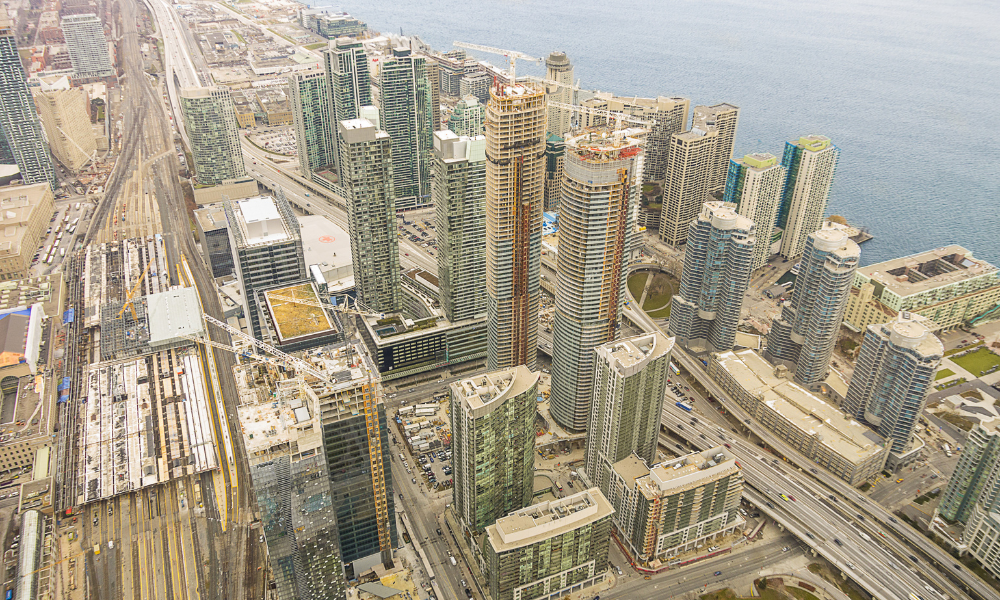Principal broker flags 30% closing failure rate and warns of overbuilding from Surrey to Calgary and GTA suburbs

The number of unsold condominiums in Toronto continues to climb, according to BNN Bloomberg.
Ron Butler, principal broker at Butler Mortgage, said in a Monday interview that the inventory of unsold condos in Canada’s largest housing market has reached a record high.
“It has reached an incredible level,” said Butler. “We have about one full year’s inventory.” He added that listings continue to climb with no sign of levelling off or decreasing in the near term.
He attributed the rising inventory to years of “severe overbuilding,” especially of smaller, less practical units.
Many of these properties were built with investors in mind and not intended for families, Butler said.
“They are roughly the size of large hotel room, only meant to be rented out, and there’s been simply a massive overbuilding of non-family units,” he said.
He added that many of the units on the market measure 500 square feet or less.
Butler described the product as unattractive to buyers, despite the ongoing housing crisis.
“The tiniest of tiny condos,” he said. “It’s weird that in a country like Canada where there’s been a consistent housing crisis for the last 10 years that if you build a very bad product, people won’t take it, it’s as simple as that.”
In Toronto, Butler noted a 30 percent failure rate for condo closings, where buyers are abandoning their pre-construction deposits.
“Some of those people will be litigated,” he said.
He added that developers allow the remaining condo units to close, then a few months later begin selling the unsold units at a substantial discount into a weakening market with growing inventory.
The issue extends beyond Toronto. Butler said condo markets in British Columbia and Alberta are also showing signs of weakness. He pointed to Surrey, B.C., where pricing projections have fallen short.
“When you’re looking five or six years into the future and saying yes, I believe that the new price level will be ‘X’ six years from now and it is nowhere near ‘X,’ you run into a severe problem,” said Butler.
“Because there’s stuff just down the road that’s selling for 25 per cent less, so how do you justify that extremely high price? It just doesn’t work.”
Even Calgary, a city that has typically escaped the pressures faced by Vancouver and Toronto, is now experiencing overbuilding in its condo sector, according to Butler.
While condo prices in downtown Toronto have remained relatively stable, Butler said significant declines are happening in surrounding areas.
“There are significant reductions if you look at Durham (Region), the far regions of Peel (Region), and in York Region. There’s definitely been… absolutely a substantial price reduction, in some cases 15 to 20 per cent down,” he said.
He added that the Hamilton and Niagara regions in Ontario have also seen recent price cuts.
Butler said that immigration levels and interest rates will remain important factors to watch in the housing market nationwide.



